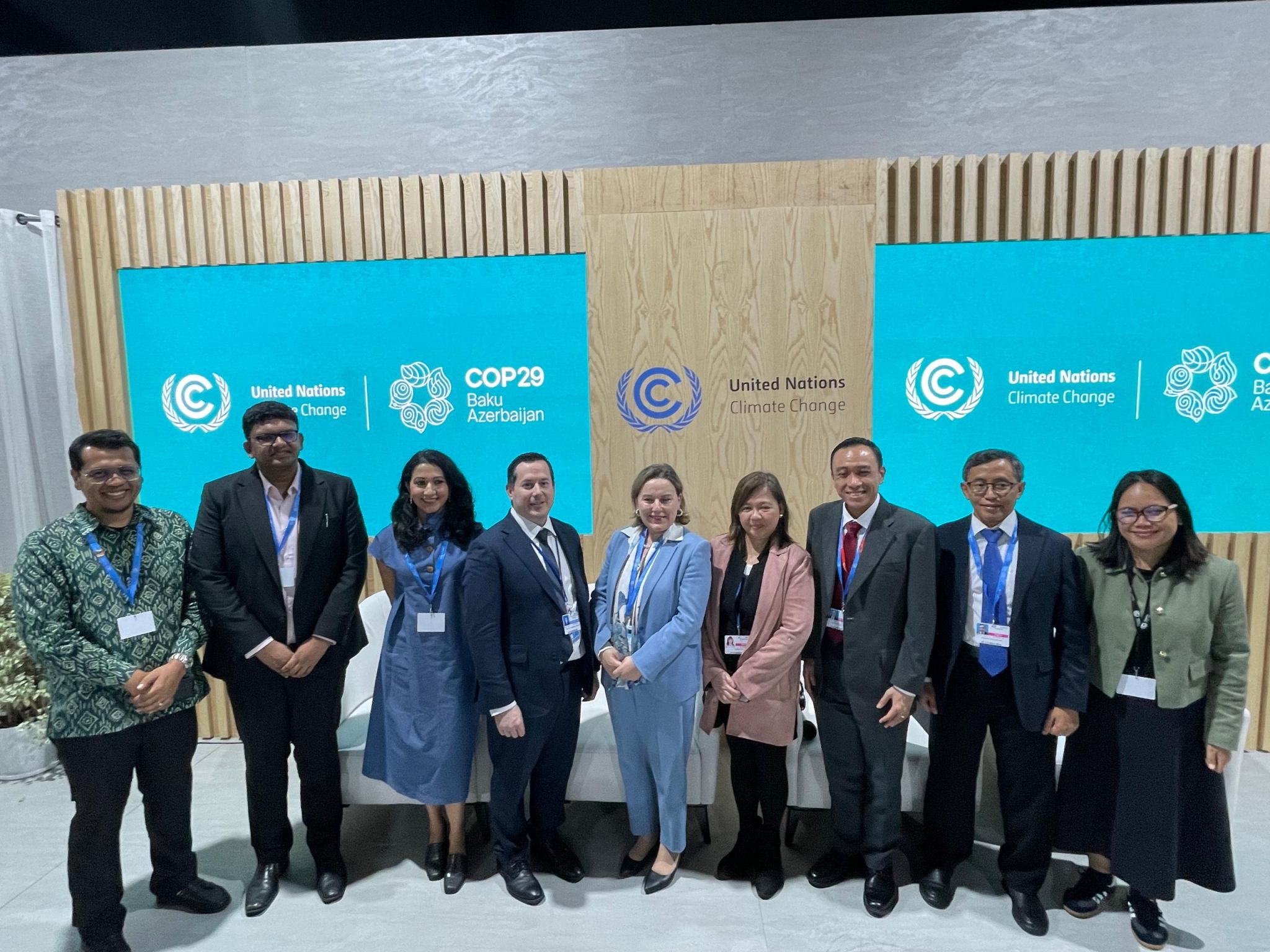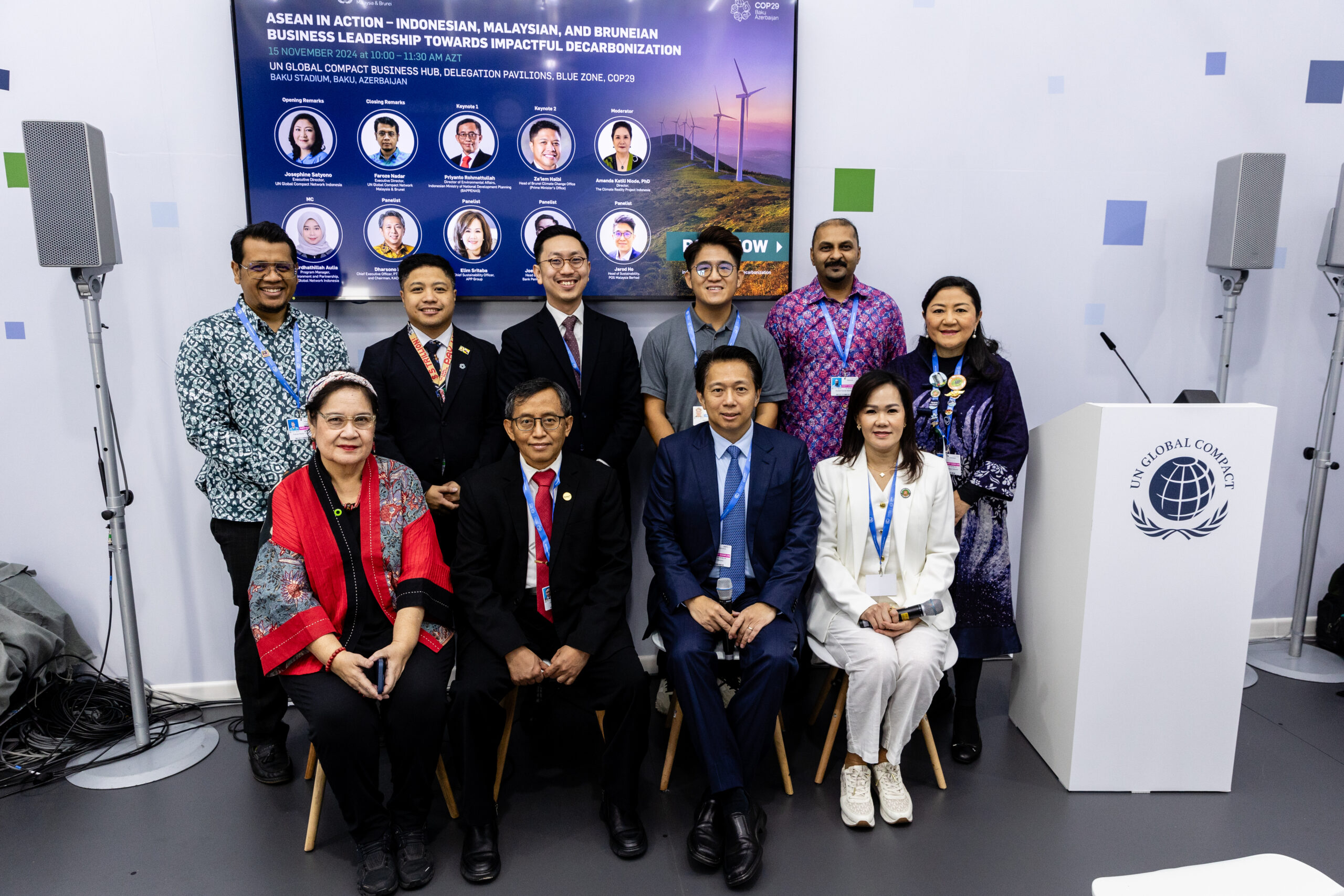UN Global Compact supports the MoU signed between IGCN and the Coordinating Ministry for Maritime Affairs and Investment to develop the International Tropical Seaweed Research Center in Indonesia, which took place on the sideline of the High-Level Ocean of The Future meeting in New York, held during UNGA79 at the UN Headquarters.

(from left to right) Josephine Satyono, Executive Director of UN Global Compact Network Indonesia; Firman Hidayat, Deputy Coordinating Minister for Maritime Resources, Coordinating Ministry for Maritime and Investment Affairs; Sanda Ojiambo, Assistant Secretary-General & CEO of the UN Global Compact; Y.W. Junardy, President of UN Global Compact Network Indonesia; and Vincent Doumeizel, Senior Advisor for Ocean at the UN Global Compact.
IGCN and the Coordinating Ministry for Maritime Affairs and Investment (Kemenkomarves) officially signed a Memorandum of Understanding (MoU)
IGCN and the Coordinating Ministry for Maritime Affairs and Investment (Kemenkomarves) officially signed a Memorandum of Understanding (MoU) during the Indonesia International Sustainability Forum (ISF) 2024 event. This MOU marks a strategic partnership and a shared commitment to support the development of the International Tropical Seaweed Research Center in Indonesia. The signing ceremony took place on September 6, 2024 at the Plenary Hall of the Jakarta Convention Center by Mochamad Firman Hidayat, Deputy Coordinating Minister for Maritime Resources of Kemenkomarves, and Josephine Satyono, Executive Director of IGCN, witnessed by Y. W. Junardy, President as well as Andi Hakim, Secretary General of IGCN.
The development of the International Tropical Seaweed Research Center is intended to advance cutting-edge research, promote sustainable practices, and develop innovative products that benefit both society and the environment. The collaboration aims to bring together the government, the private sector, and academia to ensure that efforts are comprehensive and aligned with the ten principles of the UN Global Compact and the achievement of the 2030 Agenda.
The scope of this partnership includes several key areas, such as:
- Developing research on seaweed cultivation that is resistant to climate change, supporting the improvement of community welfare, and the application of environmentally friendly technology.
- Development of tropical seaweed derivative applications to improve the value chain in the food, cosmetics, pharmaceutical, biostimulant, bioplastic, and biofuel industries.
- Facilitating national and international training, workshops, and seminars in order to share knowledge and best practices for equitable tropical seaweed development.
- Research and development related to technological innovation in increasing the efficiency of tropical seaweed cultivation and processing.
- Increasing capacity for cultivators and industry players in terms of Good Aquaculture Practices that support sustainable principles.
- Facilitating studies on the environmental impact of large-scale tropical seaweed cultivation on biodiversity in the context of sustainable cultivation.
- Strengthening national and international collaboration and cooperation networks in the tropical seaweed industry.

Josephine Satyono, Executive Director of IGCN, emphasized that the initiative would be closely aligned with the Global Seaweed Coalition, which the UNGC Ocean Stewardship Coalition hosts. She explained that this alignment would involve actively connecting local stakeholders, including seaweed cultivators, industry players, and researchers, with a global network of 2,000 UNGC Coalition members worldwide. “We believe this collaboration can facilitate a dynamic exchange of knowledge, best practices, and innovative solutions to advance sustainable seaweed cultivation.
Additionally, the initiative will benefit from the expertise of a dedicated scientific committee consisting of 20 of the world’s leading seaweed experts, who will provide valuable guidance and recommendations to ensure that the research center operates at the forefront of the industry, fostering sustainable development and innovation in the tropical seaweed sector,” said Josephine.

With the support of an extensive global network, their collaboration aims to unlock the vast potential of Indonesia’s seaweed, which is known for having the world’s most diverse range of tropical seaweed. “We will continue to work together to promote the growth of Indonesian seaweed as a future-leading commodity. We aim to ensure this partnership is fully integrated from upstream to downstream,” added Firman in his remarks.
As the initiative moves forward, it is poised to make meaningful contributions to global sustainability goals, strengthening Indonesia’s position as a leader in the tropical seaweed sector and reinforcing its commitment to achieving the 2030 Agenda.
This initiative is strengthened with the support of the UN Global Compact Ocean Stewardship Coalition expressed during the High-Level Ocean of The Future meeting in New York, taken place on the sideline of the UNGA79 at the UN Headquarters.





